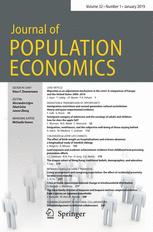A new GLO Discussion Paper finds that those who married prior to migration, who first married at an older age, who are better positioned in the labor market and are less closely connected to their ethnic origins are less likely to be divorced in the United States.
The Global Labor Organization (GLO) is an independent, non-partisan and non-governmental organization that functions as an international network and virtual platform to stimulate global research, debate and collaboration.
GLO Discussion Paper No. 388, 2019
Divorce among European and Mexican Immigrants in the U.S – Download PDF
by Chiswick, Barry R. & Houseworth, Christina A
GLO Fellow Barry Chiswick
Author Abstract: This paper analyzes the status of being currently divorced among European and Mexican immigrants in the U.S., among themselves and in comparison to the native born of the same ancestries. The data are for males and females age 18 to 55, who married only once, in the 2010-2014 American Community Surveys. Among immigrants, better job opportunities, measured by educational attainment, English proficiency and a longer duration in the U.S. are associated with a higher probability of being divorced. Those who married prior to migration and who first married at an older age are less likely to be divorced. Those who live in states with a higher divorce rate are more likely to be divorced. Thus, currently being divorced among immigrants is more likely for those who are better positioned in the labor market, less closely connected to their ethnic origins, and among Mexican immigrants who live in an environment in which divorce is more prevalent.
GLO Discussion Papers are research and policy papers of the GLO Network which are widely circulated to encourage discussion. Provided in cooperation with EconStor, a service of the ZBW – Leibniz Information Centre for Economics, GLO Discussion Papers are among others listed in RePEc (see IDEAS, EconPapers). Complete list of all GLO DPs – downloadable for free.

Ends;


